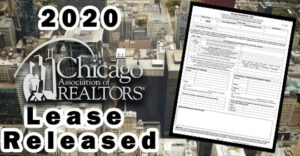 Your Alderman Has A Plan and You’re Not Going to Like It
Your Alderman Has A Plan and You’re Not Going to Like It
A new phrase has entered the landlord-tenant vernacular. “Invisible Evictions”. A few days ago, Chicago’s local neighborhood news portal, blockclubchicago.org posted a story about “Invisible Evictions” allegedly perpetrated by developers in Logan Square and Pilsen. The thrust of the story is that developers are quietly forcing renters out of those neighborhoods. The author is quick to point out the injustice of this situation pointing out that the tenants have not “missed a payment” nor “broken any rules”. This sounds TERRIBLE, right?!? How can those nasty developers do this??? I’ll tell you. The sentiment expressed in the article is representative of the war tenants’ rights advocates are waging against developers and, quite frankly, Western culture (yes, you read that right). It is a battle between property rights and the in vogue claim that housing is a “human right”. Let’s look closer.









